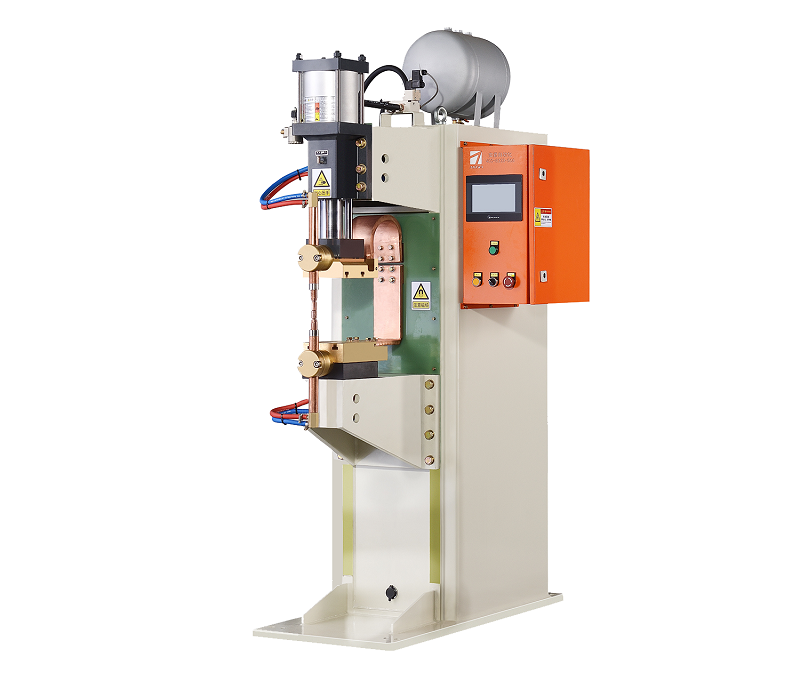Medium-frequency direct current spot welding machines are essential tools in various industries, especially in the manufacturing sector. Understanding their basic structure is crucial for anyone working with or around these machines. In this article, we will delve into the key components and functionalities of a medium-frequency direct current spot welding machine.

- Transformer: At the heart of the machine lies the transformer. This component is responsible for converting the input alternating current (AC) into medium-frequency direct current (MFDC). The MFDC is crucial for achieving precise and efficient spot welds.
- Rectifier: To ensure a steady supply of direct current, a rectifier is employed. This device converts the MFDC into a stable form suitable for welding applications. It helps maintain a consistent welding current, which is essential for high-quality spot welds.
- Control Panel: The control panel is the interface through which operators set and adjust welding parameters such as current, voltage, and welding time. It allows for precise control, ensuring that welds meet the desired quality standards.
- Welding Electrodes: These are the parts of the machine that come into direct contact with the workpiece. Typically, there are two electrodes, one stationary and one movable. When they come together, an electrical circuit is completed, generating the heat required for welding.
- Cooling System: Spot welding generates a significant amount of heat, which can potentially damage the machine. To prevent overheating, a cooling system, often comprised of water or air cooling, is integrated into the machine. This system helps maintain a stable operating temperature.
- Welding Timer: The welding timer is responsible for precisely controlling the duration of the weld. It ensures that the electrodes stay in contact with the workpiece for the optimal amount of time to create a strong and durable weld.
- Safety Features: Medium-frequency direct current spot welding machines are equipped with safety mechanisms such as emergency stop buttons and overload protection. These features help prevent accidents and protect both the machine and the operator.
In conclusion, a medium-frequency direct current spot welding machine’s basic structure consists of essential components like the transformer, rectifier, control panel, welding electrodes, cooling system, welding timer, and safety features. Understanding how these parts work together is essential for operating the machine safely and efficiently, leading to high-quality spot welds in various industrial applications.
Post time: Oct-08-2023







